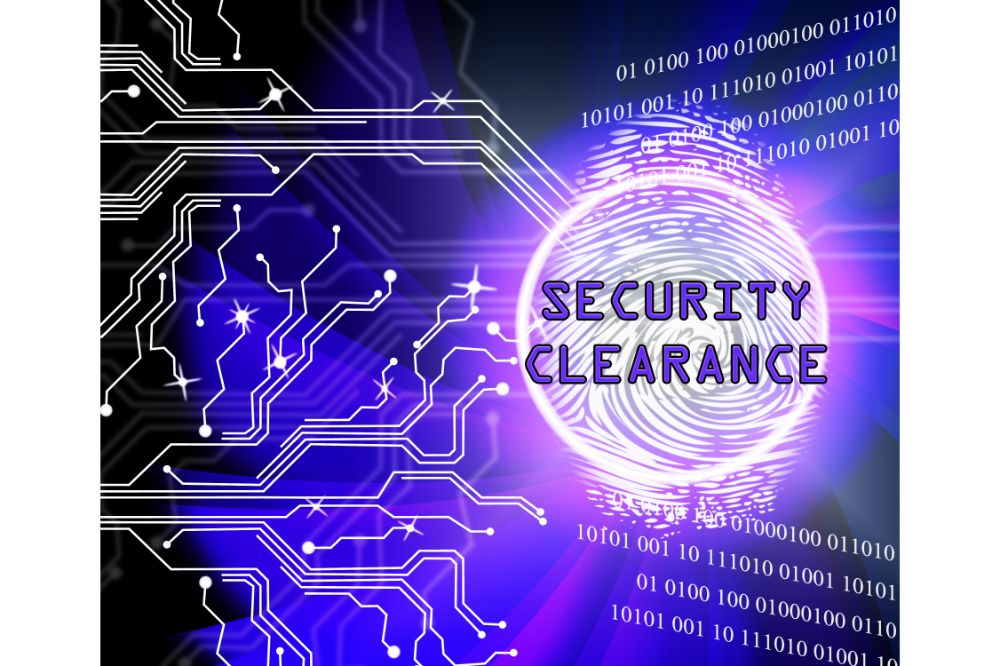Security clearances are background checks, and in the United States, individuals require a security clearance to be hired for government jobs or any other national security organization. It is essential to have a security clearance so that you can access classified information, which is normally restricted. This information usually has limited access.
Many jobs require a national security clearance, which would require filling out a security clearance application and approval. These jobs can include positions in national intelligence, homeland security, or any other post, especially in the federal government.
Types of Security Clearances
Depending on the corporation or organization, there are different types of security classification. These levels of security clearance can be categorized as below:
Top secret – This will give you access to information that, in the wrong hands, could result in grave consequences to national security. It is the most restrictive of all clearances and requires reinvestigation every five years for continued eligibility. Top secret clearance is granted after SSBI (Single Scope Background Investigation) for data related to counterintelligence, counterterrorism, and any other susceptible information.
Secret – This gives you access to information that would result in severe consequences to national security should there be unauthorized disclosure. Reinvestigation for eligibility happens after every 10 years. Secret clearance also involves NACLC and a credit investigation.
Confidential – Provides access to information that would result in consequences to national security if it falls into the wrong hands. It is the least restrictive of all security clearances, and for continued eligibility, you must be reinvestigated every 15 years.
These clearances usually require periodic renewal and reinvestigation. If you retire from the position you were given clearance for, the status will change from “active” to “current” before it expires. It usually expires after two years. The type of security clearance depends on where you want to be hired.
These clearances are put in place to assess the trustworthiness and eligibility of an individual to possess sensitive information. However, even with a security clearance, the system operates on a need-to-know basis. The access rights are determined by officers assigned to the department that handles the requested data. In addition, there exists classified information that would require you additional clearance to access.
They are:
Special access programs – These involve susceptible operations and projects. They are usually established by the Department of Defense for various programs, for example, new military technology. These clearance levels are usually granted to very few people.
Sensitive compartmented information – This involves methods and sources that are intelligence related. You can only get clearance through (SSBI) Single Scope Background Investigation and an adjudication process.
Which Jobs Require Security Clearances?
Many assume that only high-ranking government officials and military personnel require security clearances, but this is not the case. It is estimated that more than 4 million Americans have security clearances. Federal positions like the USAID or state department also require security clearances, which apply to consultants or employees that work with federal contracts or grants. Even private organizations that work with the government will require a security clearance.
Higher levels of clearance are often required for agencies dealing with diplomacy, the national intelligence community, or any federal agency. These include the CIA, FBI, DEA, Homeland security, Office of National Security Intelligence, and many more. To get these jobs, you must get a security clearance, hence the need to follow the security clearance process.

How Can You Get a Security Clearance?
You cannot just decide to get a security clearance on your own. You must be under sponsorship by a government agency and have received a conditional job offer. Moreover, you must also be a U.S citizen. The government agency usually covers the charges when you apply and obtain clearance. We have outlined and explained the steps involved in getting a security clearance:
1. Application
You will need to start by filling out an application form. The application will require personal information and supporting documents, which is done through the e-QIP system (Electronic Questionnaires for Investigations Processing). The investigation standards are determined by risks associated with the knowledge or information the individual to be hired needs to handle.
There are five tiers of these investigation standards, each with a corresponding Office of Personnel Management e-QIP form that requires filling. Depending on what the requirements of the hiring office are, each candidate will fill out any of the following questionnaires:
- Non-Sensitive Positions
- Public Trust Positions
- National Security Positions
The hiring office will collect these, then submit them to the DCSA (Defence Counterintelligence and Security Agency), also referred to as the Defence Security Service (DSS). Some situations might involve forwarding the security package to the Department of State Human Resources Sustainability Panel.
2. Investigation
Any individual seeking a security clearance will undergo a comprehensive background check to see if they are illegible; an investigative staff will do this. The investigation may involve reviewing medical records, law enforcement checks, and financial record checks. In addition, the DSS (Diplomatic Security Service) might contact your friends, family, and neighbors to fulfill the investigative requirements.
How deep the investigation will dive depends on the level of security clearance you are looking to get and the investigative agency involved. It might take quite some time for the investigation to be complete. Should the DSS require further information or if they are backlogged, the process might take a couple of months to a year. However, in some scenarios, you might be hired and start the job sooner after getting an interim clearance.
3. Adjudication
After the investigation is complete, it will have to be reviewed according to the 13 adjudicative guidelines by staff adjudicators. Contents of these guidelines include the following:
- Allegiance to the United States
- Financial Considerations
- Sexual behavior
- Mental health
- Criminal records
- Any illegal drug involvement or drug and alcohol misuse
- Employment history
After the adjudication is complete, you will either be granted the security clearance or denied. The plus side of getting a security clearance is that once you have it, you can still apply for other jobs that require security clearances, even if a different authorized agency granted it.
Can You Be Disqualified from a Security Clearance?
Yes, you can be disqualified from a security clearance. One of the compelling reasons that can disqualify you is having dual citizenship. Other bases for denials can include inconsistency in debt payments, unlawful or inappropriate sexual orientation, use of illegal drugs, or any financial indiscipline such as embezzlement and theft. The basis for denial is usually that because of any of the mentioned reasons above, you are not fit to have confidential and secret information.
You can get a 10 to 20 percent increase in your salary if you get a security clearance. The number may, however, vary depending on the government agency, your role, and the level of clearance.
Featured Resources – United States Air Force Application

